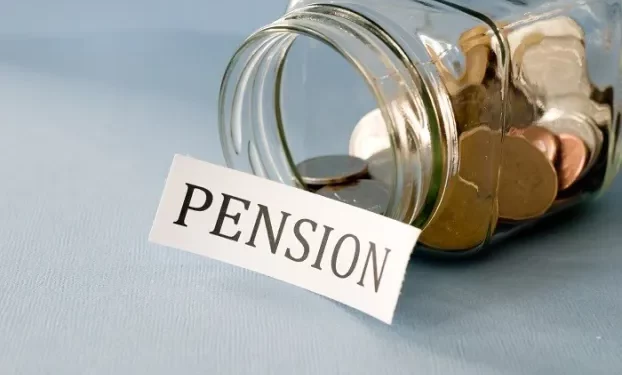How Nigeria PFAs Can Copy Ghana’s Investment Strategy
Nigeria’s pension fund administrators (PFAs) have a lesson to learn from Ghanaian peers on how to diversify investments to earn higher returns.
According to the latest data by the National Pension Commission (PenCom), assets under management were mainly invested in federal government securities, which accounted for 62.03 percent of total investments in the first quarter (Q1) of 2024.
Nigeria’s PFAs invested 11.9 percent in equities, 8.73 percent in local money markets, and 0.54 percent in mutual funds, which included real estate investment trust (REITS), private equity funds and others.
Hence Nigeria’s PFAs are too exposed to government securities and pay little attention to the real economy.
To reduce exposure to one asset class, Ghanaian peers were allowed by regulations to set up what was known as ‘Fund of Funds,’ which can enable them to invest as much as 25 percent in alternative assets. The ‘Fund of Funds’ is a local currency, de-risked fund, with 70 percent coming from pensions and 30 percent from catalytic funding. The $75 million fund allows Ghanaian PFAs to invest 10-15 percent in venture funds and even in other lucrative businesses.
Ama Lartey, CEO of Impact Investing Ghana, explained that Ghanaian PFAs have been working on this fund for the past two years and on how to unlock pension funding for the real economy.
“We have been on working on how to unlock the pension industry to invest in small and medium enterprises (SMEs) and other businesses so that we can have returns that are good for the pension clients,” Lartey said at the West Africa deal summit 2024 themed, ‘Mobilizing Catalytic Capital in West Africa: Innovative and alternative financing vehicles for West Africa’s Growth,’ held in Lagos on Wednesday.
She said though new regulations guiding Ghana’s pension funds allow up to 25 percent in alternative investments, PFAs were initially hesitant due to their poor knowledge of asset classes, valuation challenges, and lack of experience.
“They felt their clients did not understand alternative investments.
So, they were concerned with how to do periodic reports to their clients. They were concerned that their clients felt they were investing their money in things that were not safe. PFAs also feared that they lacked knowledge investing in these areas,” she said.
“A fund manager has been appointed, Savannah impact advisory. Regulatory approval has been obtained, and we are on track to a first close,” Lartey said.
To set up the fund, Lartey said, “We got our champions in the form of the CEOs of the seven largest pension trustees and fund managers who engage personally or with a C level executive in what we call the ‘Pensions Industry Collaborative.’ We also have had partners like the World Economic Forum, GSG impact, COVID, who helped us with getting the catalytic investors. So far, Ghanaian PFAs have begun to invest in venture funds that have track records.
“Nigeria can come in, they can partner with different stakeholders in financial services, with regulators, with others, to design some interventions to solve some of the issues that may arise in the process of unlocking the pensions to alternative assets,” she said.
Driving Real Economy
According to the Organisation for Economic Co-operation and Development (OECD), the ratio for most African countries’ pension assets to GDP remains below 60 percent. However, Nigeria’s case is far below.
Investing in alternative investments (in this instance, venture capital and private equity) allows African pension funds to invest in an asset class that can provide uncorrelated returns to traditional investments.
Lartey noted that the Nigerian pension industry needs to support this move to sustain their business by investing in SMEs to continue job creation.
“We are really hoping that Nigerian pensions will support this move for their own sustainability because if we’re not investing in the real economy, and young people don’t have jobs, there will be no client for the pension industry,” she said.
Diversification of portfolios
Lartey said the fund has enabled PFAs to diversify their portfoliso and de-risk against government defaulting.
“You can’t have a huge chunk of your portfolio in government bonds because you need to use a small bit of your money to begin to experiment, understand and learn.
“Also it’s too risky, and we all know that Ghana defaulted on its bonds,” she said.
In 2022, Ghana defaulted on most of its $30 billion of international debt, as the strain of the COVID-19 pandemic, war in Ukraine and higher global interest rates tipped it into crisis.
Currently Nigeria and Ghana are battling with high inflation rates of 32.70 and 22.1 percent respectively, resulting in interest rates increases. Ghana only recently cut down its rate to 27 percent while Nigeria increased its rate to 27.25 percent.
This has increased the risk on government securities, making the risk of defaulting on their obligations possible.
“With the high interest rate environment, the government is at risk of default unless it is doing something productive or taxes are increasing. And how can taxes increase when no one is investing in the real economy for people to now have big businesses. Ghana’s default has shown us that we are a smaller country,” Lartey said.
Similarly Wale Adeosun, CEO, Kuramo Capital ,also advocated for allocation of pension funds into alternative instruments to enhance pension fund performance in Nigeria.
He highlighted the risks of over-reliance on government bonds, citing the potential for default and the dangers of over-concentration in one asset class.
He suggested reallocation of a portion of pension funds from government securities to private companies, which are crucial for economic growth and job creation.








